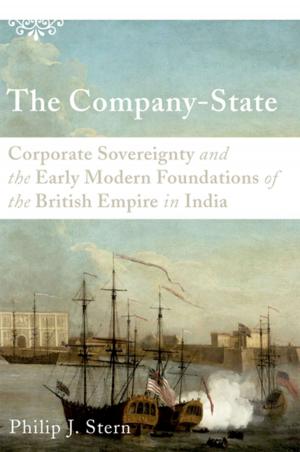Foreign Fighters
Transnational Identity in Civil Conflicts
Nonfiction, Social & Cultural Studies, Political Science, International, International Security, International Relations| Author: | David Malet | ISBN: | 9780199339884 |
| Publisher: | Oxford University Press | Publication: | April 30, 2013 |
| Imprint: | Oxford University Press | Language: | English |
| Author: | David Malet |
| ISBN: | 9780199339884 |
| Publisher: | Oxford University Press |
| Publication: | April 30, 2013 |
| Imprint: | Oxford University Press |
| Language: | English |
In conflict zones around the world, the phenomenon of foreign insurgents fighting on behalf of local rebel groups is a common occurrence. They have been an increasing source of concern because they engage in deadlier attacks than local fighters do. They also violate international laws and norms of citizenship. And because of their zeal, their adversaries - often the most powerful countries in the world - are frequently incapable of deterring them. Foreign fighters have made headlines in recent wars in Afghanistan, Iraq, and Somalia, and the term is widely equated with militant Islamists. However, foreign fighters are not a new phenomenon. Throughout modern history, outside combatants have fought on behalf of causes ranging from international communism to aggrieved ethnic groups. Analyzing the long history of foreign fighters in the modern era helps us understand why they join insurgencies, what drives their behavior, and what policymakers can do in response. In Foreign Fighters, David Malet examines how insurgencies recruit individuals from abroad who would seem to have no direct connection to a distant war. Remarkably, the same recruiting strategies have been employed successfully in all foreign fighter cases, regardless of the particular circumstances of a conflict. Malet also catalogues foreign fighters in civil wars over the past two centuries, providing data indicating that they are disproportionately successful and growing in number. Detailed case histories constructed from archival material and original interviews demonstrate the same recruitment patterns in highly diverse conflicts including the Texas Revolution, the Spanish Civil War, the Israeli War of Independence, and the Afghanistan War. The results show that foreign fighters from Davy Crockett to George Orwell to Osama bin Laden create and respond to strategically crafted appeals to defend transnational communities under dire threat.
In conflict zones around the world, the phenomenon of foreign insurgents fighting on behalf of local rebel groups is a common occurrence. They have been an increasing source of concern because they engage in deadlier attacks than local fighters do. They also violate international laws and norms of citizenship. And because of their zeal, their adversaries - often the most powerful countries in the world - are frequently incapable of deterring them. Foreign fighters have made headlines in recent wars in Afghanistan, Iraq, and Somalia, and the term is widely equated with militant Islamists. However, foreign fighters are not a new phenomenon. Throughout modern history, outside combatants have fought on behalf of causes ranging from international communism to aggrieved ethnic groups. Analyzing the long history of foreign fighters in the modern era helps us understand why they join insurgencies, what drives their behavior, and what policymakers can do in response. In Foreign Fighters, David Malet examines how insurgencies recruit individuals from abroad who would seem to have no direct connection to a distant war. Remarkably, the same recruiting strategies have been employed successfully in all foreign fighter cases, regardless of the particular circumstances of a conflict. Malet also catalogues foreign fighters in civil wars over the past two centuries, providing data indicating that they are disproportionately successful and growing in number. Detailed case histories constructed from archival material and original interviews demonstrate the same recruitment patterns in highly diverse conflicts including the Texas Revolution, the Spanish Civil War, the Israeli War of Independence, and the Afghanistan War. The results show that foreign fighters from Davy Crockett to George Orwell to Osama bin Laden create and respond to strategically crafted appeals to defend transnational communities under dire threat.















